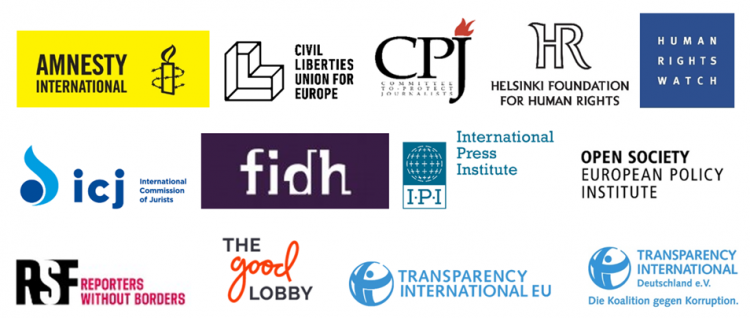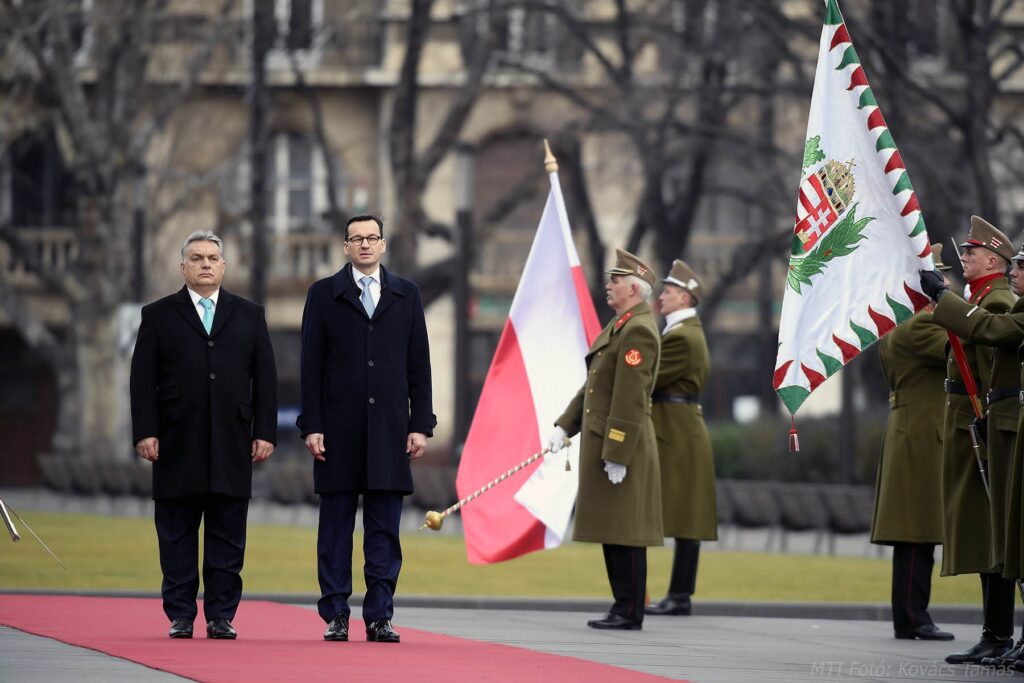Il traguardo del Recovery Fund dell’Unione Europea in supporto dei Paesi Membri impattati dalla pandemia di Covid-19 è ora ad un punto di stallo dopo che l’Ungheria e la Polonia hanno bloccato l’approvazione del budget dell’UE il 16 Novembre. I due Paesi dell’est Europa si sono opposti alla clausola secondo cui i fondi dell’Unione verrebbero distribuiti solo agli Stati Membri che rispettano lo stato di diritto. Il rifiuto di questi due stati, che hanno sistematicamente violato i diritti e le libertà fondamentali dei propri cittadini, di adeguarsi a questo meccanismo mette in discussione i valori dell’Unione Europea.
Per questo motivo The Good Lobby insieme ad un gruppo di altre 12 organizzazioni della società civile ha deciso di inviare una lettera alla cancelliera tedesca Angela Merkel, che sta attualmente presiedendo al Consiglio Europeo, chiedendo di portare avanti la proposta di regolamentazione originale che lega il recovery budget dell’UE con la condizione del rispetto dello stato di diritto. Crediamo che ogni tentativo di riaprire le negoziazioni sulla bozza riguardante il meccanismo di condizionalità porterebbe a minare irrimediabilmente l’efficacia della nuova regolamentazione proposta. Inoltre, attraverso questa lettera, chiediamo con forza all’Unione Europea di assicurarsi che il Recovery Fund non vada a beneficio di quei governi che minacciano diritti come la Polonia, o indeboliscono lo stato di diritto o la libertà di espressione dei mezzi di informazione come l’Ungheria.
Leggi la lettera completa (in inglese) qui sotto
La lettera è stata inviata alla Cancelliera Angela Merkel il 3 dicembre 2020:
E: Rule of law and the general regime of conditionality for the protection of the Union budget
Dear Chancellor Merkel,
On November 16, two EU member states blocked the adoption of the Multi-Annual Financial Framework (MFF) and the COVID-19 Recovery and Resilience Facility (RRF) in an attempt to prevent the adoption of conditionalities for the protection of the EU budget from breaches of the principles of the rule of law. This move has created a grave political crisis for the European Union.
Governments and EU institutions have a responsibility to act to address the economic damage caused by COVID-19 and facilitate a swift recovery for the economy of the Union. But they also have a responsibility to uphold the values enshrined in Article 2 of the Treaty, including the rule of law, and to ensure that breaches to these principles do not affect the Union budget.
We, therefore, urge you not to reopen, delay or weaken the implementation of the proposed regulation on conditionality following the pressure from leaders that refuse to uphold and enforce Europe’s rule of law values – even if it means delinking the adoption of the conditionality regulation from the EU budget or by-passing the current threat of veto. The current Article 7 procedures, aimed at safeguarding the EU’s fundamental values, underway on Hungary and Poland, must also not be used as bargaining chips.
It is not a surprise that governments blocking the EU budget include those facing scrutiny under the Article 7 procedure. In Poland, government reforms seriously threaten judicial independence and undermine access to justice. Most recently, a court compromised by its lack of independence and legitimacy – one of the reasons why Article 7 was triggered – undermined the reproductive rights of women and girls, and LGBTI+ people are under constant threat of attacks and discrimination. In Hungary, the government has undermined the rule of law, imposed restrictions on associations and weakened academic freedom, and eroded media freedom and media pluralism – putting at risk the effectiveness and transparency over the spending of EU funds. Over the last decade, Hungary has been embroiled in several corruption scandals involving EU funds.
We are concerned that any interpretation or re-opening of the draft conditionality regulation would only contribute to irremediably weakening the effectiveness and credibility of the newly proposed mechanism. The compromise version confirmed by EU Ambassadors by a qualified majority on September 16, is already less ambitious than the Commission’s proposal in 2018 and the position of the European Parliament, and already offers some concessions to the governments of Poland and Hungary.
We call upon you to uphold the principles enshrined in the Treaty and ensure that the EU is equipped as soon as possible with a conditionality mechanism that protects EU funding from harmful consequences of rule of law deficits.
The current deadlock comes on the back of a lack of political will to prioritize a principled EU response to years of rule of law backslide in some EU member states. A successful answer can only be one that sends the message that respect for the rule of law and other core EU principles is not up for negotiation.
Respectfully,
Amnesty International
Civil Liberties Union for Europe
Committee to Protect Journalists
Helsinki Foundation for Human Rights (Warsaw, Poland)
Human Rights Watch
International Commission of Jurists
International Federation for Human Rights
International Press Institute
Open Society European Policy Institute
Reporters Without Borders
The Good Lobby
Transparency International EU
Transparency International Germany

Copy to: Mr Michael Roth, Minister of State for Europe at the Federal Foreign Office
photo credits (Tamas Kovacs/MTI via AP)
